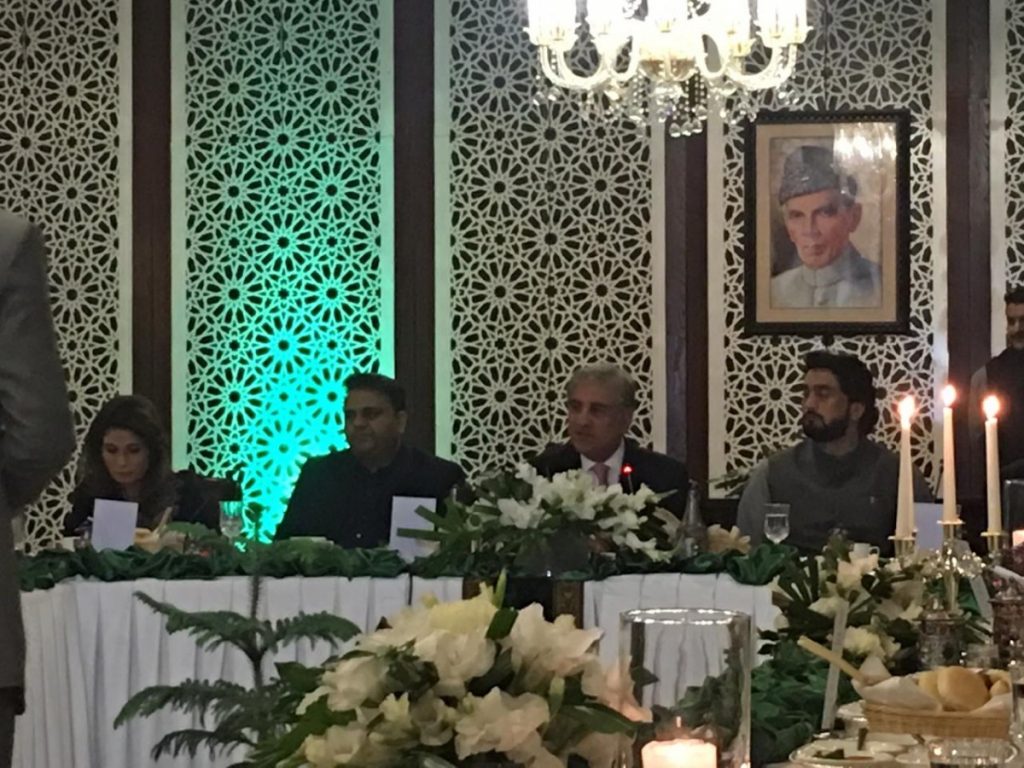Islamabad: Pakistan’s outreach to India through the “Kartarpur spirit” is fuelled by the “difficult economic situation”, Pakistan foreign minister Shah Mehmood Qureshi said on Thursday.
Speaking to Indian reporters after the ground-breaking ceremony for the Kartarpur Sahib corridor by Pakistan Prime Minister Imran Khan, he said that the new Pakistan Tehreek-e-Insaaf (PTI) government was elected on a very specific agenda.
“Let me point out why we support this entire (peace) process. We have come on mandate to fix the economy. We are in a difficult economic situation… trade deficit is historic and the growth rate is abysmal,” he said.
Also Read: ‘The Ice Is Melting’: A Triumphant Sidhu Returns to Pakistan for Kartarpur Launch
The foreign minister noted that ability of Pakistan’s institutions to deliver services “has been compromised due to political bickering and interference”.
There are “common challenges” of climate change, of water scarcity, he said, adding that the “most sensible way forward is to sit and talk about issues”.
“There is a new environment and they (India) should take advantage of new environment,” he stated.
Qureshi reiterated Imran Khan’s statement on Wednesday that all the stakeholders, including the army, were on the “same page” with regard to outreach towards India.
“If we want to do what we want to do, which is concentrate on fixing poverty, institutions, we need peace in the region. We need peace on the eastern side and on the western side,” he said.
Qureshi urged India to send external affairs minister Sushma Swaraj to Pakistan to hold talks.
At the same time, he said that Pakistan was willing to wait for New Delhi to be ready to engage, hinting that electoral politics was behind Indian government’s lukewarm response.
“..we can wait, whenever you are ready. I understand that elections are important as a politician, so we will wait”.
Sushma Swaraj had said on Wednesday that the launch of the construction of Kartarpur corridor project was not the start of a dialogue process. She reiterated that talks and terror cannot go together.

S.M. Qureshi interacting with Indian journalists. Credit: Devirupa Mitra
Asked if he was disappointed on India’s reaction, Qureshi replied, “No, I am not, because my expectation wasn’t too high.”
Swaraj had decline the invitation to attend the ceremony which laid the foundation stone for the corridor project linking Gurudwara Darbar Sahib in Kartarpur to Gurdwara Dera Nanak Baba in Gurdapur. India had, instead, send two Union ministers.
Qureshi wondered as to how Swaraj could state that the two were participating in their “personal capacity”, since they were serving ministers in the government of India. However, Indian media reports do not mention Swaraj making such a remark.
On the presence of a Khalistani ideologue at the Kartarpur ceremony, he said that it was unfortunate that Indian TV channels were “focussing on one face”. “This does not allow walls to fall down. Let’s get over it,” he added.
He described terrorism and Kashmir as two of the “obstacles” in India-Pakistan relations
Recalling Khan’s meeting with Modi in 2015, Qureshi said that the then Pakistani leader of opposition had told the Indian prime minister “that there will always be spoilers, there will always be incidents to block the process”.
Also Read: New Delhi, Islamabad Jostle for Credit as Kartarpur Sahib Corridor Gets Green Signal
Pakistan wants “unending dialogue” as the issues are “complex” he added.
To another question on whether Pakistan could reiterate the 2004 Lahore joint statement to allay Indian fears, Qureshi replied, “We are very clear that our soil should not be used against anyone and that includes India”.
With India marking the ten year anniversary of 26/11 attacks this year, Qureshi was asked whether Imran Khan’s clarion call for “bold leadership” should also be extended to Pakistan’s actions to bring perpetrators to justice.
“For that legally tenable evidence is required. The matter is sub-judice so I don’t want to comment on it at this stage,” he replied.
